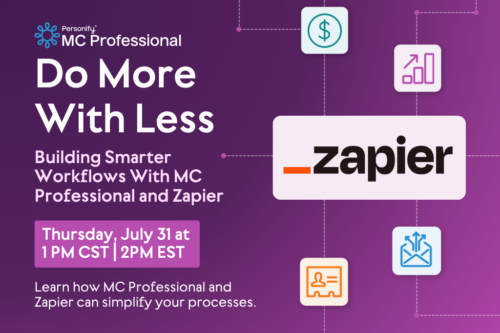Nothing is quite so moving as hearing a really great speaker deliver a compelling address from a stage. Whether they’re talking about business, finance, health, creativity, or anything else, speakers can pull in audiences and create passionate experiences.
It’s not as simple as picking up the phone and ordering up your next professional, though. Before you book, take your time to think through all the details. Not sure where to start? Here’s how to find speakers for an event.
What to know before you start looking for speakers
First and foremost, when searching for speakers for your event, make sure to stick to the basics. What is your organization’s focus? What does your audience need? How does this event propose to serve that need?
It’s possible that the best way to create a meaningful experience is to get the biggest talking head in your industry. Even if you can afford to shell out for a household name, though, are they really the best choice for your audience? Or are you getting distracted by wanting a unicorn when a solid workhorse would do just as well (and come at a much more affordable price)?
Remember, it isn’t just the person. It’s also the cost, their specifications, their schedule, and the time they’ll offer you when they’re in town. Look at the complete package before signing on the dotted line.
Types of speakers and which are right for you
So what types of speakers are right for your organization? That’s up to you, and will depend on the vision for your event. Is it built on the idea of one powerhouse presentation? How big is your budget? Are you looking for one speaker or multiple?
The good news, says the blog MarketResearch.com, is that “There are an estimated 40,000 professional speakers in the United States.” That’s a lot of names from which to choose, and you don’t have to take a traditional in-person approach, either.
Why? Because “the old roster of familiar names is dying, retiring, or cutting back on their travel schedules. Live events attendance is slumping, so speakers are delivering their message more often via more convenient and less costly online courses and academies, coaching by phone, webinars, and other online vehicles.”
The blog adds that most speakers have a variety of income channels, including books, courses, podcasts, webinars, and coaching as well.
The modern speaker
Due to the prevalence of speakers in many different places, you don’t have to book someone to literally walk across your stage. If you’re open to it, you can hire someone to give a digital address for much less. This dramatically widens your options for how to find speakers for an event.
Moreover, it can help you increase your audience attendance too, since you can pipe a digital address straight to computer screens across the country and world. If you’re thinking of a hybrid event, then a remote speaker might be just the ticket for writing your proposal effectively.
Understanding your audience
Next on the list of how to find speakers for an event: Know your audience. What are they into? What do they want from you? Do they care about name recognition, or do they just want good intel?
For instance, a group of tax preparers looking for the best ways to save their clients money in the coming year probably won’t care that much about who gives them the info.
On the other hand, a bunch of people looking to transform their figures will likely be more motivated by a big name backed by major successes, perhaps even in the celebrity world.
Knowing your event’s theme and objectives
Every event should have both a theme and a set of objectives on which it operates. Otherwise, without clear direction, it’s much harder to engage your audience.
Choose one theme, and stick to it. This is the guiding light for your entire event, dictating who speaks, what services you offer, what swag you send people away with, and what message you use to sell the event to them in the first place.
Examples of event themes might include:
- Your best self in a weekend
- Add a zero to your income
- Seasonal or holiday
- Carnivals or casinos
- Destinations
- Industry (dream wedding, modern kitchen, etc.)
Whatever your theme, make sure it aligns with who you are and what you do. For instance, if you’re a nonprofit dedicated to writers, a destination workshop might be a good idea. A destination event is, however, not at all useful to kitchen suppliers who need a showroom.
Make sure your theme both informs and follows from your objectives. What actions are you hoping people will take? Do you want them to make purchases or is the ticket price enough? How will this further your cause overall?
Answer these questions before booking your speaker and you have a better chance of fulfilling your original mission in hosting your event.
How to find speakers for your event
So now you have a better idea of who you want headlining. It’s time to take a detailed look at how to find speakers for an event.
1. Networking and referrals
First and foremost, take a look at whom you already know … and whom they know. A preexisting relationship can save you tons of time researching and reaching out. Put the word out on LinkedIn or social media, and let your members know that their recommendations and introductions are welcome (and might even come with a perk or two).
Reach out to board members or your local chamber of commerce
Board members are elected because they’re in the know. They’re experts in their fields, have a lot of connections, and have open hearts. They are a fantastic place to start for recommendations.
2. Who’s influential in your field?
Other than board members, who else is influential in your field? If we continue with the example of the writing nonprofit, this might include:
- Local and national authors
- Editors and literary agents
- Poets
- Journalists
- Teachers
These people might be willing to speak themselves, or they might have great recommendations to share and introductions to make. Both are super helpful!
3. Ask what your audience wants to see
Your audience is the best source of information on what your audience needs. Before you get tangled up in how to find speakers for an event, just ask: “What do you guys want to see? What will make you attend? What kind of information do you crave?”
Poll social media
The easiest way to go about this is to put the question out on social media. You can offer an incentive for completing a survey, but many people will do it just because they care. You can also use email and text for surveys.
4. Use speaker lists and databases
If learning how to find speakers for an event seems daunting, take the guesswork out of it. Use a speaker list or database, which is easy to find online and full of event potential.
5. Research competitor events
What are your competitors doing? Who are they hiring? What themes and objectives have worked for them in the past? This is a goldmine of information. Don’t copy their approach, but do pay close attention to what their audiences keep coming back for.
6. Re-book top speakers from past events
Did someone perform really well in the past? Then most likely, they and your audience would both be happy to repeat the experience. Make sure you always administer post-event surveys so that you have this kind of information later on.
Next step: Make the ask
All right, you know who you want speaking at your event. Or, alternatively, you’ve made a shortlist and are ready to pick up the phone. It’s intimidating, though, to approach someone who has name recognition, even if only in your niche industry, and ask them for their time. If you feel a bit anxious, that’s only natural.
Just remember: They aren’t going to speak for free. This isn’t a favor you’re asking for; it’s a business transaction you’re proposing. Be direct about your event, sharing attendance numbers and scheduling details. Tell them exactly what you want them to speak about, for how long, and in what venue. They or their agent will decide and get back to you, no stress needed.
It’s a good idea to have an event registration app already set up at this point. That way, as soon as your speaker says yes, you can add them to the headline and take your event marketing live.
Final Thoughts
Now that you know how to find speakers for an event, you’ll have a much easier time doing it the next time around … and the next time and the next.
Still have questions about how an event registration app can help you streamline your process, grow your audience, and bring in more attendees than ever before? MemberClicks is here to help, so get in touch today!
















